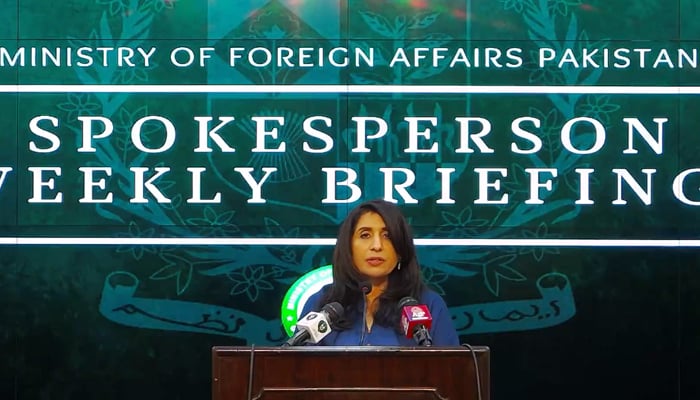'Disappointed': Pakistan questions US for adding it to religious freedom blacklist, excluding India
India's "conspicuous omission" makes process "discriminatory", says FO spokesperson
Pakistan took on Thursday strong exception to the United States recent decision to add the country to its religious freedom blacklist and exclude India from it, saying the decision is "detached from ground realities of Pakistan".
In a statement attributed to Foreign Office (FO) spokesperson Mumtaz Zahra Baloch, it was highlighted that Pakistan has a "multi-religious and pluralistic society with a rich tradition of inter-faith harmony".
Last week, the US added Pakistan, China and Latin American adversaries Cuba and Nicaragua, among others, to a blacklist — Countries of Particular Concern from 2021 — on international religious freedom, opening the path to potential sanctions.
Secretary of State Antony Blinken took no action against India, ignoring a recommendation by the autonomous US Commission on International Religious Freedom (USCRIF), which said that treatment of minorities was "significantly" worsening under Prime Minister Narendra Modi´s Hindu nationalist government. India is seen by the US as a key emerging ally.
India had already voiced anger over the State Department´s annual report, which documented incendiary comments by Indian officials and accounts of discrimination against Muslims and Christians.
The FO spokesperson expressed "deep concern and disappointment" on what she called the US State Department’s "unilateral and arbitrary" designation of Pakistan to the blacklist.
Calling India the "biggest violator of religious freedom", she questioned why the country was excluded from the blacklist despite a "clear recommendation" by the USCIRF.
She said the "conspicuous omission" raises serious questions about the credibility and transparency of the entire process and makes it a subjective and discriminatory exercise.
"International concerns over India’s treatment of religious minorities have been the subject of several hearings of the US Congress and reports of UN High Commissioner for Human Rights, the Special Procedure Mandate Holders of the UN Human Rights Council, and reputed international NGOs," the FO spokesperson highlighted.
She said we have conveyed our concerns to the US government regarding this designation.
Giving an example, Baloch said the 30th anniversary of the demolition of the historic Babri Mosque in the Indian city of Ayodhya by Hindu zealots is a sad reminder of the growing religious intolerance in India, which should not be ignored by the international community.
The FO spokesperson reiterated that religious freedom and the protection of rights of minorities are guaranteed in the Constitution of Pakistan and enforced through a range of legislative, policy and administrative measures.
-
Security forces gun down 30 terrorists in multiple IBOs in KP: ISPR
-
MQM-P calls for new province in Sindh
-
US report validates Pakistan military edge over India: PM
-
Banned TTP poses serious threat to Pakistan security: UNSC panel
-
CM Afridi clarifies remarks on by-poll after ECP requests army deployment
-
Dubai sees 3.2m Pakistani passengers in 2025 as airport sets new milestone
-
Security forces kill 23 Indian proxy terrorists in KP's Kurram
-
Pakistan to construct island to boost oil exploration: report












